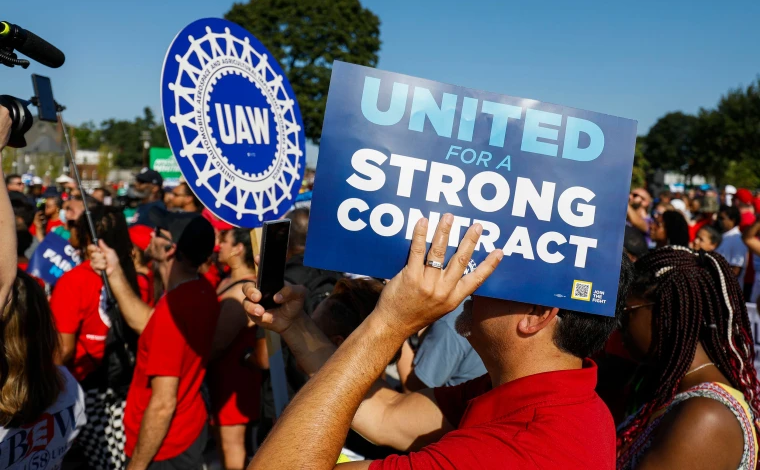UAW: Championing Labor Rights in a Changing Landscape

The United Auto Workers (UAW) has been a prominent force in the American labor movement since its inception. Rooted in the automobile industry, UAW has expanded its influence over the years, encompassing a range of sectors and advocating for workers’ rights. This comprehensive exploration of UAW delves into its history, key achievements, challenges, and its evolving role in the modern labor landscape. The goal is to provide a thorough understanding of UAW’s impact and significance in the ongoing discourse on labor rights and unionization.
Historical Overview: The Formation and Rise of UAW
The United Auto Workers was established in the 1930s, born out of the burgeoning automobile industry in Detroit, Michigan. Its formation was a response to the deplorable working conditions, low wages, and lack of job security faced by auto workers. The union quickly gained momentum, notably through successful sit-down strikes that forced major automakers to recognize and negotiate with UAW. This period marked a significant victory for labor rights, setting the stage for UAW’s expanding influence in the industry and beyond.
UAW’s Achievements and Contributions
UAW’s impact on labor rights has been profound. It played a pivotal role in establishing fair wages, reasonable working hours, health benefits, and job security for workers. UAW’s advocacy extended to social issues, as it supported civil rights movements and pushed for equitable employment practices. The union’s ability to negotiate favorable contracts set a standard for labor relations in America, influencing other industries and shaping the national labor policy.
Facing Challenges: Economic Shifts and Membership Declines
Despite its achievements, UAW has faced significant challenges. The decline of the American auto industry, marked by factory closures and job losses, profoundly impacted UAW’s membership and bargaining power. Globalization and the shift of manufacturing jobs overseas further complicated matters, as did the increasing automation of production processes. These economic shifts necessitated a reevaluation of UAW’s strategies and objectives to remain relevant and effective in a changing industrial landscape.
The Role of UAW in Modern Labor Relations
In the contemporary context, UAW continues to play a critical role in labor relations. The union has expanded its focus beyond the auto industry to represent workers in diverse sectors, including healthcare, academia, and the public sector. UAW’s efforts in recent times have included advocating for better wages and working conditions, addressing the challenges of gig economy workers, and tackling issues related to technological advancements in the workplace.
UAW’s Impact on Social and Political Spheres
UAW’s influence extends beyond labor negotiations. The union has been a powerful voice in social and political spheres, advocating for progressive policies and workers’ rights. It has actively engaged in political campaigns, supporting candidates and legislation that align with its principles. UAW’s involvement in social justice issues, from racial equality to environmental concerns, underscores its commitment to broader societal change.
Overcoming Controversies and Internal Struggles
Like many large organizations, UAW has not been immune to controversies and internal struggles. Allegations of corruption and leadership issues have surfaced at times, challenging the union’s credibility and effectiveness. Addressing these issues has been crucial for UAW to maintain its position as a leading advocate for workers’ rights and to regain trust among its members and the public.
The Future of UAW and Labor Unions
Looking ahead, UAW faces a landscape marked by rapid technological changes, evolving labor markets, and political uncertainties. Adapting to these conditions while staying true to its core mission will be crucial for UAW’s future success. The union’s ability to navigate these challenges, engage with a younger and more diverse workforce, and advocate effectively in the digital age will determine its role and relevance in the coming years.
Conclusion: UAW’s Enduring Legacy and Ongoing Journey
In conclusion, the United Auto Workers (UAW) holds a significant place in American labor history. Its journey from championing auto workers’ rights to addressing contemporary labor challenges reflects its adaptability and enduring commitment to the labor movement. UAW’s legacy is not just in its past achievements but also in its ongoing efforts to advocate for fair and equitable labor practices. As the landscape of work continues to evolve, UAW’s role in shaping the future of labor rights remains a critical aspect of its mission. The union’s resilience and ability to adapt will be key in continuing to uphold the rights and interests of workers in an ever-changing world.



